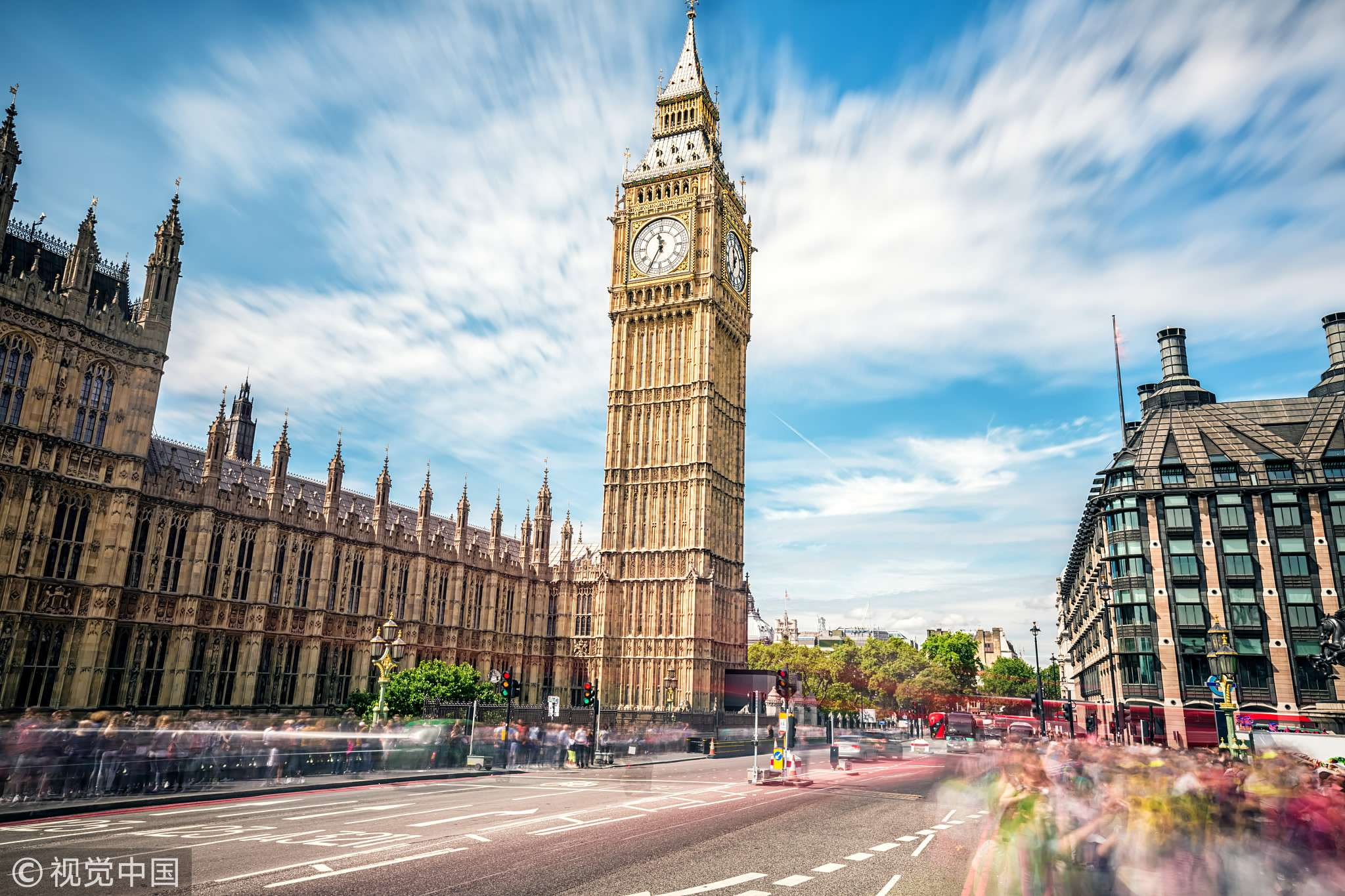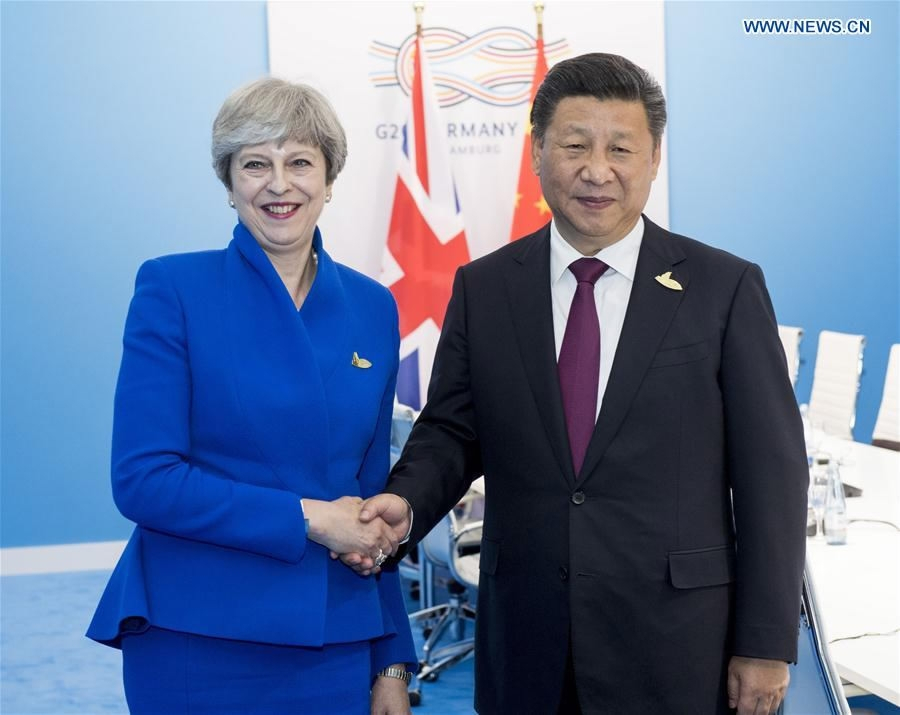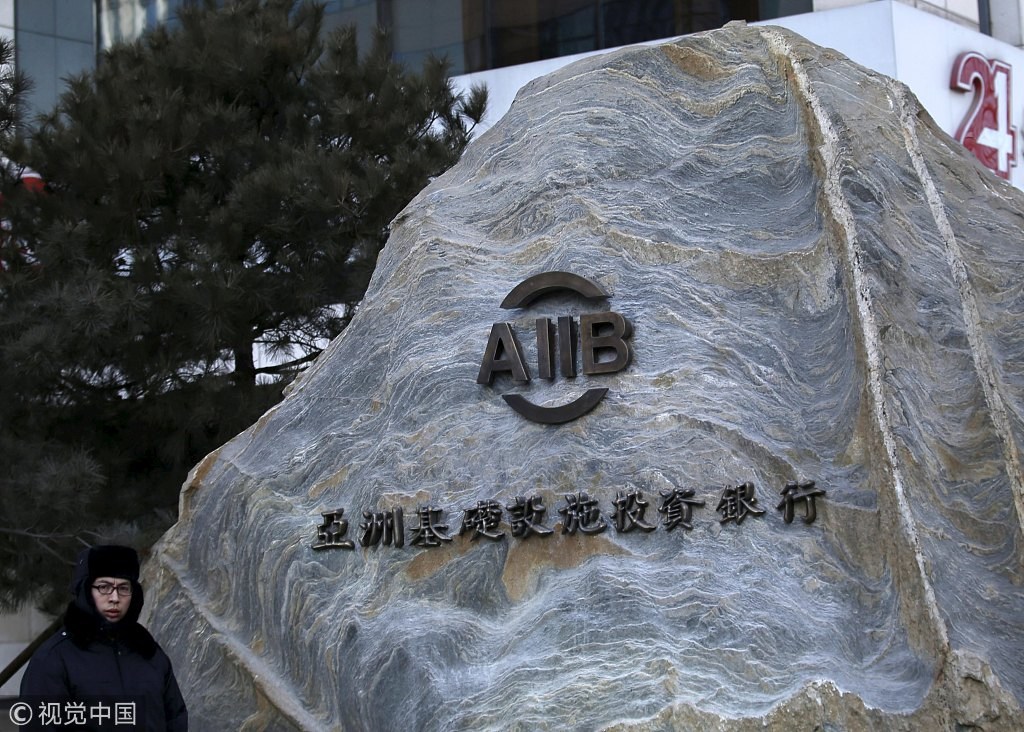
Opinion
15:14, 22-Apr-2019
The BRI: Building a city within the City of London
Bobby Naderi

Editor's note: Bobby Naderi is a journalist, current affairs commentator, documentary filmmaker, and member of the Writers Guild of Great Britain. The article reflects the author's opinion, and not necessarily the views of CGTN.
The Royal Albert Dock in east London used to be a desolate waterfront for several decades, suffering from mass unemployment and social problems.
Thanks to China's Belt and Road Initiative (BRI), the largest infrastructure development project of the 21st century, the dock and its surroundings are no longer in decline and despair.
The whole area is now humming with international commerce and culture, home to London's only enterprise zone, known as the Royal Docks Enterprise Zone.
It will soon create more than 20,000 new jobs to act as a gateway to the United Kingdom for Chinese businesses, and through investment in housing, leisure facilities, and transport connections. It will further provide affordable workspaces for British start-ups and knowledge-driven industries such as media, fashion, and fintech - with rental and operating costs much less than those in the West End.

Street view of London /VCG Photo
Street view of London /VCG Photo
The Chinese-funded joint redevelopment project started in 2017 in the docklands. As part of it, the Royal Albert Docks will be the Asian Business Port (ABP), and after the project is completed in just about eight years, it will be the international platform for Chinese companies and investors to enter the British and European markets, using London City Airport to connect to many destinations across the European continent.
As well, in collaboration with local businesses and Londoners, the Asian Business Port will steward local investment, business, and commerce for the common good. In this new global business hub, dubbed as a "city within a city", the incentives will range from business rate relief for five years from the date of arrival to enhanced capital allowances, tax relief, and more.
As is often the case, the BRI, a unified market without peer on the planet, has been building a city within the City of London to transform the once neglected Royal Albert Dock and its surroundings into a gleaming business hub for international finance and tech firms. At the same time, the Asian Business Port is changing the everyday lives of many people and local businesses across the River Thames and east London.
It's a sentiment also shared by British officials and local authorities, who have welcomed the area's transformation. Rokhsana Fiaz, mayor of Newham that houses the redevelopment project, says, “The Royal Docks is going through a renaissance and once again will be London's gateway to the world.

Chinese President Xi Jinping met with British Prime Minister Theresa May in Hamburg, Germany, July 7, 2017. /Xinhua Photo
Chinese President Xi Jinping met with British Prime Minister Theresa May in Hamburg, Germany, July 7, 2017. /Xinhua Photo
With ABP, London City Airport, Crossrail and Silvertown Quays, it offers many opportunities for businesses and the residents of Newham. A vibrant place, it now offers a home to British companies and businesses from around the world.”
For now, the project is the largest ever infrastructure development in the UK to be led by a private Chinese company. Many international businesses, including dozens from China, will soon open up branches in the ABP. This has to be great news for the east London communities, which still suffer from poverty and deprivation. Since the ABP is an inclusive club, it will bring benefits to the locals, by creating new jobs and investment opportunities in the surrounding neighborhoods.
After all, as maintained by Chinese Ambassador to the UK Liu Xiaoming, "The Belt and Road Initiative is a chorus rather than a one-man show, a platform for win-win cooperation rather than a tool to put one's own country first."
Little wonder Douglas Flint, Britain's envoy to the BRI, has also said that the UK plans to channel investment and expertise into the international economic development program. In his words, "In line with national interests and priorities, we will act as a portal for UK commercial engagement, throughout the BRI projects."
It means what it means. The establishment of the Asian Business Port in London is a great leap forward in the China-UK diplomatic and economic relations. The plus point is that all of this is happening under the BRI, in which the very meaning of the common good is up for grabs. This bold, intensely internationalist vision will soon reshape and extend the trajectory of Chinese-British trade and commerce beyond the confines of their national borders.
The joint infrastructure development project has undoubtedly sent a clear message to the government and people of Great Britain that there is no rivalry between Beijing and London, and certainly no cutthroat commercial competition for dominance. Put simply, this is a new form of collaboration and trust has been built upon economic integration and internationalism.

AIIB's headquarter building in Beijing /VCG Photo
AIIB's headquarter building in Beijing /VCG Photo
In the process and with help from the Asian Infrastructure and Investment Bank that has many member nations and billions of dollars in capital, China and UK can and should create an opening for a major shift in the nature of their relations under the BRI.
It's the only way to knit the Pacific and the Atlantic, transcend the vast distances, establish a shorter shipping route, and advance shared wealth and prosperity. Such a grandiose vision is possible because it's been built upon mutual trust, equal trade terms, and fair business practices and commercial opportunities.
The ever-accelerating China-UK economic partnership and joint infrastructure development projects like the Asian Business Port in east London have the potential to provide other European countries participating in the BRI with equal opportunities, too, such as Italy and Greece, in what Chinese President Xi Jinping once said is the "project of the century," or the strategy of the four continents.
(If you want to contribute and have specific expertise, please contact us at opinions@cgtn.com)

SITEMAP
Copyright © 2018 CGTN. Beijing ICP prepared NO.16065310-3
Copyright © 2018 CGTN. Beijing ICP prepared NO.16065310-3